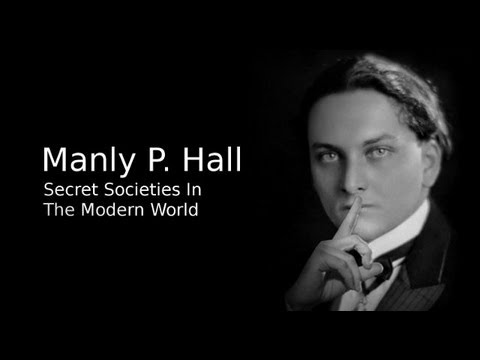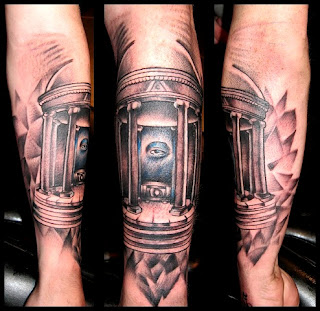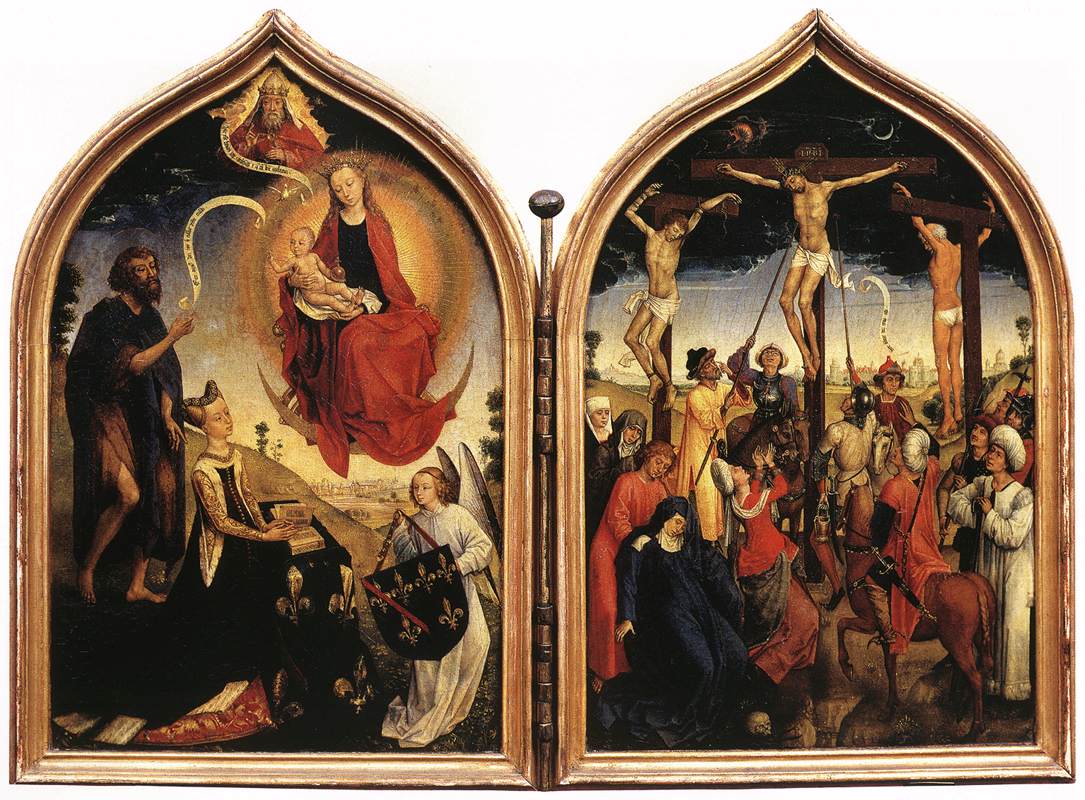After two years in Fez, C.R.C. sailed for Spain, carrying with him many treasures, among them rare plants and animals accumulated during his wanderings. He fondly hoped that the learned men of Europe would receive with gratitude the rare intellectual and material treasures which he had brought for their consideration. Instead he encountered only ridicule, for the so-called wise were afraid to admit their previous ignorance lest their prestige be impaired. At this point in the narrative is an interpolation stating that Paracelsus, while not a member of the “Fraternity of the Rose Cross,” had read the book M and from a consideration of its contents had secured information which made him the foremost physician of mediæval Europe.
Tired, but not discouraged, as the result of the fruitlessness of his efforts, C.R.C. returned to Germany, where he built a house in which he could quietly carry on his study and research. He also manufactured a number of rare scientific instruments for research purposes. While he could have made himself famous had he cared to commercialize his knowledge, he preferred the companionship of God to the esteem of men.
After five years of retirement he decided to renew his struggle for a reformation of the arts and sciences of his day, this time with the aid of a few trusted friends. He sent to the cloister where his early training had been received and called to himself three brethren, whom he bound by an oath to preserve inviolate the secrets he should impart and to write down for the sake of posterity the information
THE GOLDEN AND ROSY CROSS.
From Geheime Figuren der Rosenkreuzer. It is said of this cross that it is made of spiritual gold and that each Brother wears it upon his breast. It bears the alchemical symbols of salt, sulphur, and mercury; also a star of the planets; and around it are the four words FAITH, HOPE, LOVE, and PATIENCE. The double-headed eagle, or Phœnix, subtly foreshadows the ultimate androgynous state of the human creature. Rosicrucian alchemy was not concerned with metals alone. Man’s own body was the alchemical laboratory, and none could reach Rosicrucian adeptship until he had performed the supreme experiment of transmutation by changing the base metals of ignorance into the pure gold of wisdom and understanding.
p. 138
he should dictate. These four founded the “Fraternity of the Rose Cross.” They prepared its secret cipher language and, according to the Fama, a great dictionary in which all forms of wisdom were classified to the glorification of God. They also began the work of transcribing the book M, but found the task too difficult because of the demands of the great numbers of sick who came to them for healing.
Having completed a newer and larger building, which they called the “House of the Holy Spirit,” they decided to include four new members in the Fraternity, thus increasing the number to eight, seven of whom were German. All were unmarried. Working industriously together, they speedily completed the arduous labor of preparing the documents, instructions, and arcana of the Order. They also put the house called “Sancti Spiritus” in order.
They then decided to separate and visit the other countries of the earth, not only that their wisdom might be given to others who deserved it but also that they might check and correct any mistakes existing in their own system. Before separating, the Brethren prepared six rules, or by-laws, and each bound himself to obey them. The first rule was that they should take to themselves no other dignity or credit than that they were willing to heal the sick without charge. The second was that from that time on forever they should wear no special robe or garment, but should dress according to the custom of the country wherein they dwelt. The third stated that every year upon a certain day they should meet in the “House of the Holy Spirit,” or, if unable to do so, should be represented by an epistle. The fourth decreed that each member should search for a worthy person to succeed him at his own demise. The fifth stated that the letters “R.C.” should be their seal, mark, and character from that time onward. The sixth specified that the Fraternity should remain unknown to the world for a period of one hundred years.

Moe is the founder of GnosticWarrior.com. He is a father, husband, author, martial arts black belt, and an expert in Gnosticism, the occult, and esotericism.







